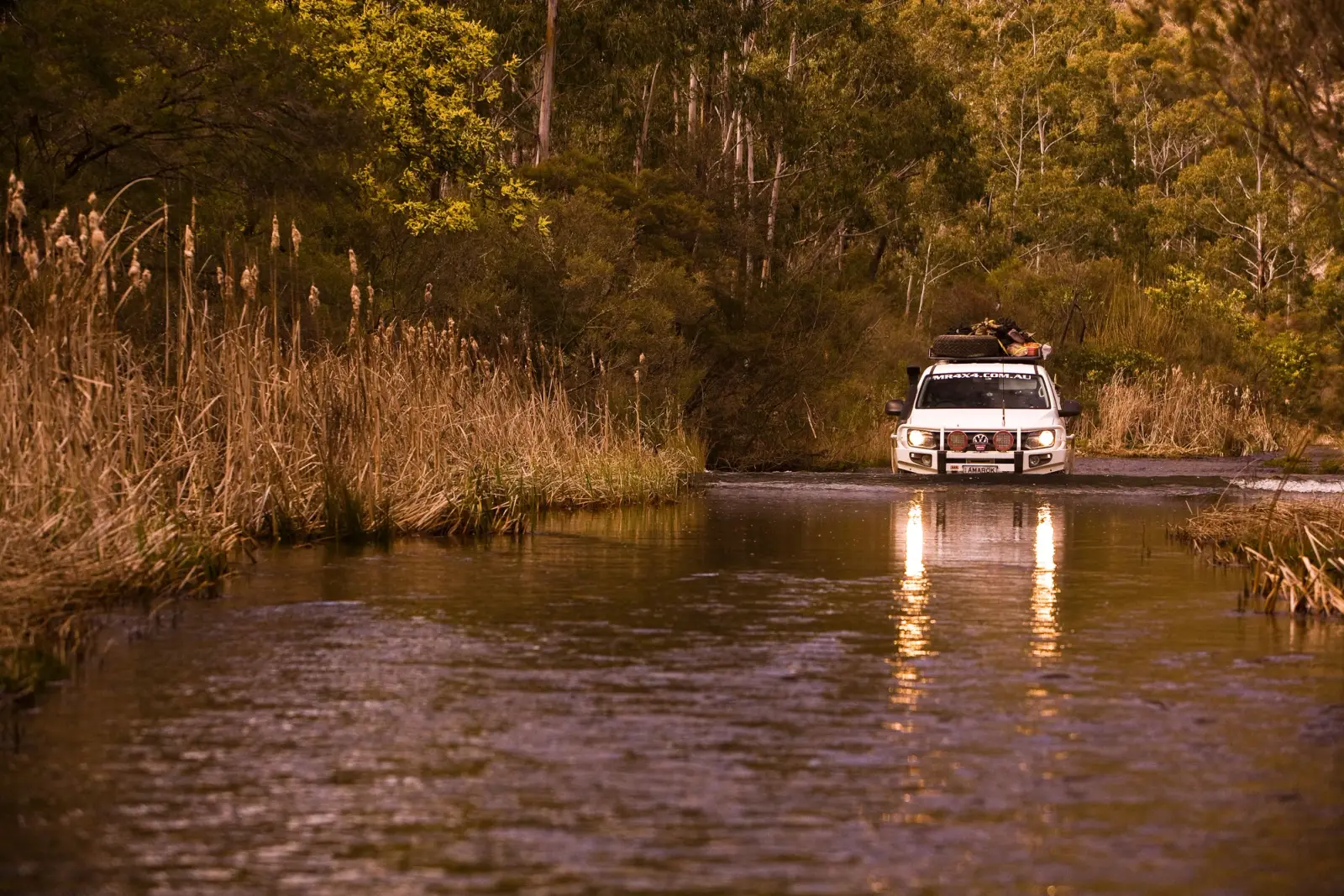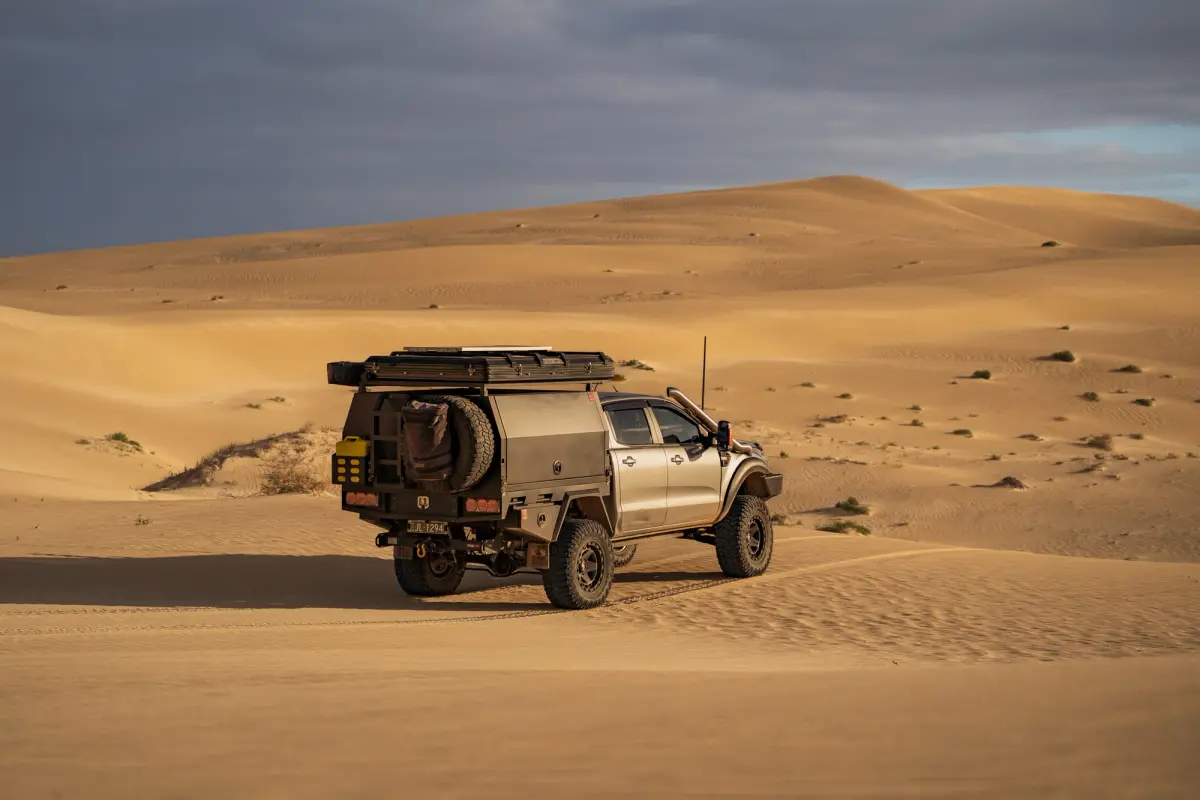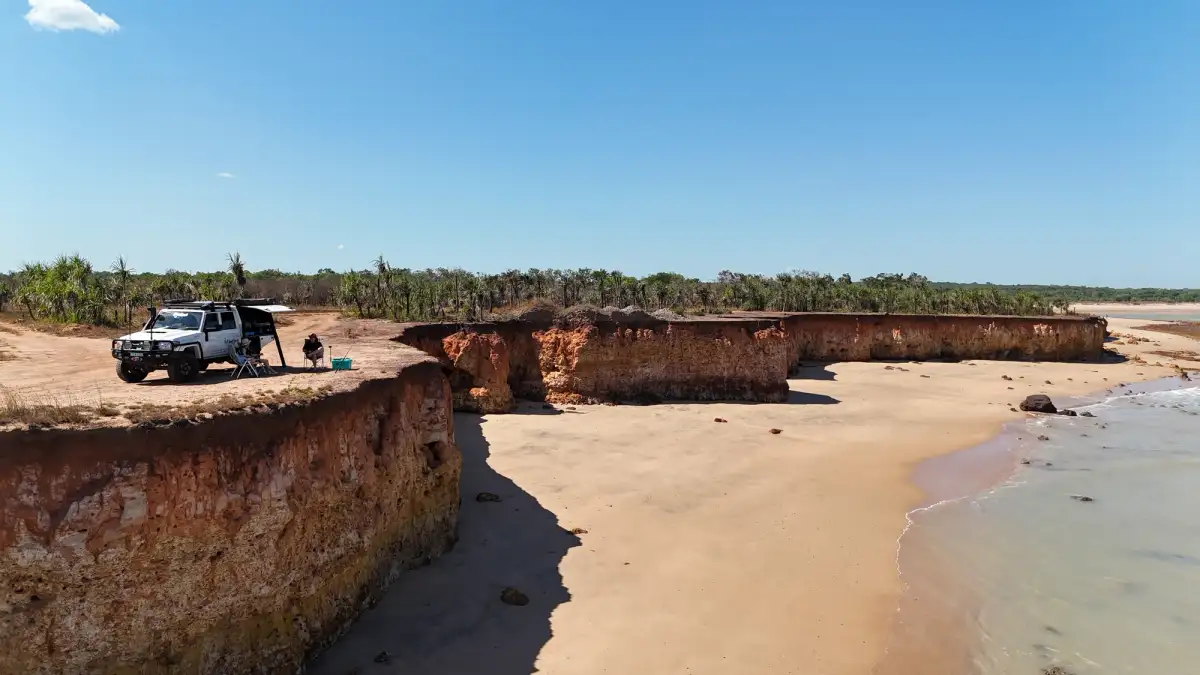Water crossings can be exhilarating and challenging for us 4X4 enthusiasts, but they also pose potential risks to your vehicle's mechanical and electrical components. You should understand the importance of proper preparation to prevent water ingress that could cause damage. In this article, we'llcover essential measures such as diff (differential) breathers, water blinds, snorkel, and allowing the vehicle to cool down before entering icy cold water. These precautions will help protect your vehicle's vital parts and ensure a safe and successful water crossing.
As exhilarating as water crossings can be, try and keep a cool head with challenging crossings. Never attempt to cross flooded waters, or crossings you can’t safely walk. It’s just not worth it. And check if your insurance policy covers you for water crossings – some don’t or will charge you an additional excess for damage sustained in a water crossing. Why do they do this? Because water crossings are the most common cause of damage off-road.
1. Diff Breathers:
One of the first steps in preparing for water crossings is to install diff breathers. These extensions raise the breathers on differentials, transfer cases, and gearboxes to higher points on the vehicle. By doing so, they prevent water from entering these components during a crossing. Diff breathers allow for the equaliszation of pressure and help maintain the integrity of these critical parts. Water in the oil in these parts can cause oxidation and bearing/gear damage long before you can see free water or colour change.
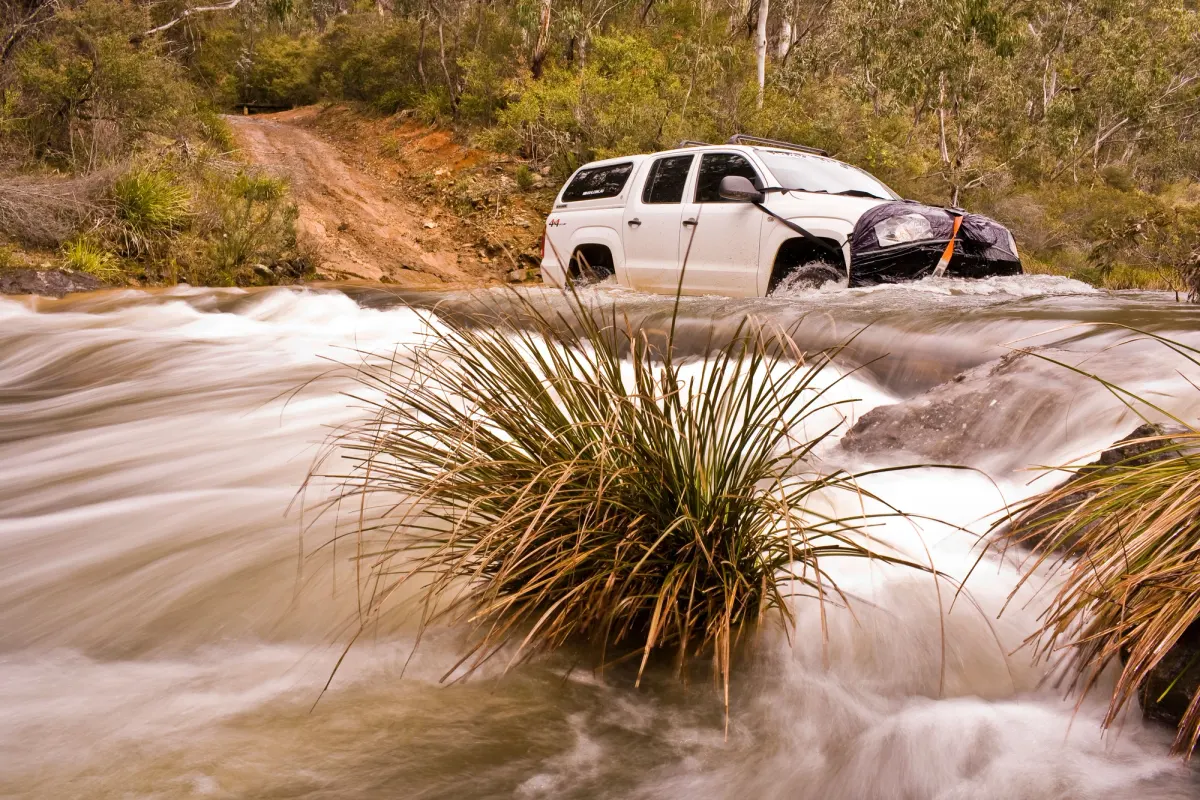
2. Water Blinds:
Water blinds are protective covers that can be placed over the front of the vehicle before entering a water crossing. These blinds act as a shield, preventing water from entering the engine bay and protecting electrical systems and radiator fans. They are particularly useful in preventing damage to radiator fans, which can spin at different angles if immersed in water, potentially puncturing the radiator.
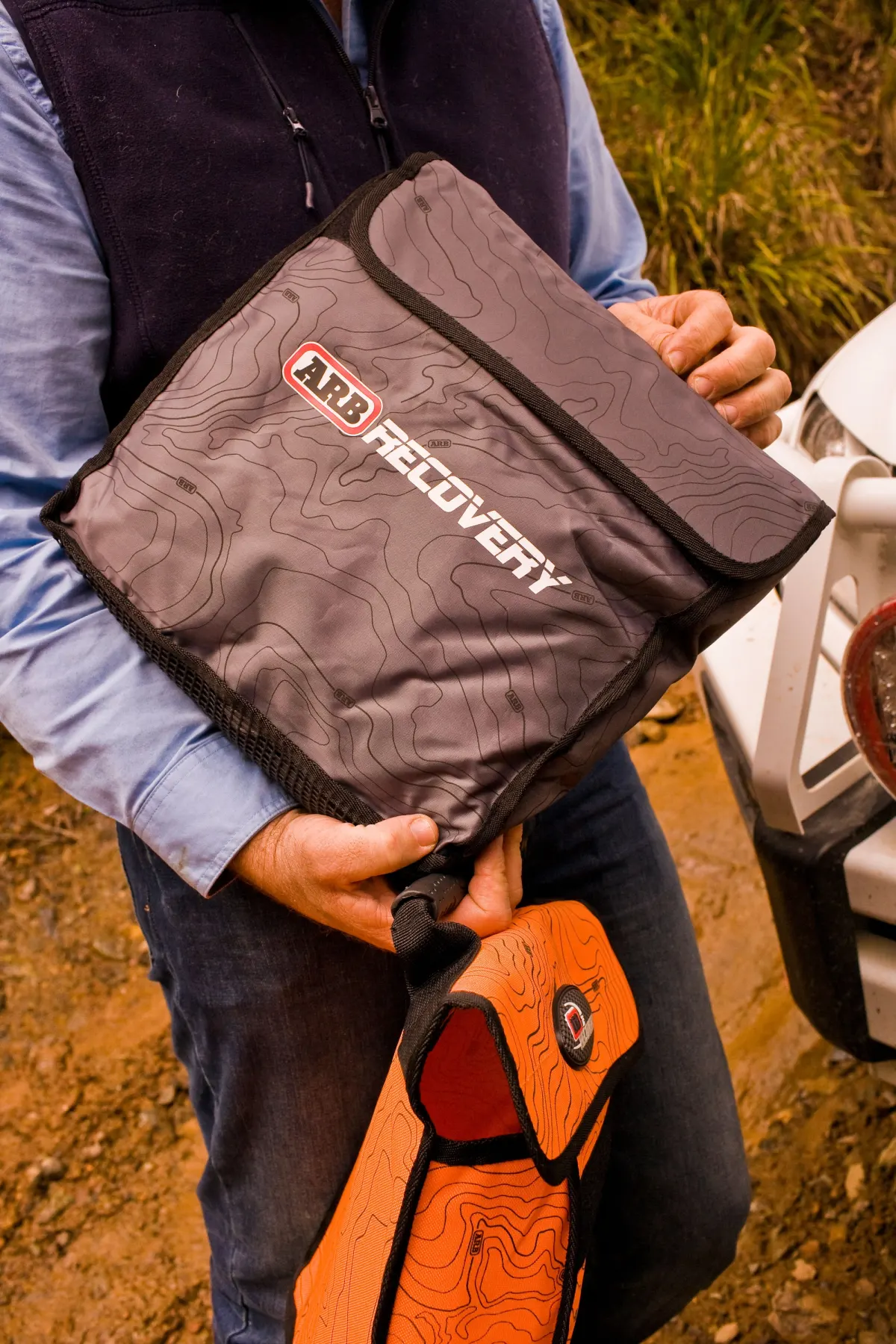
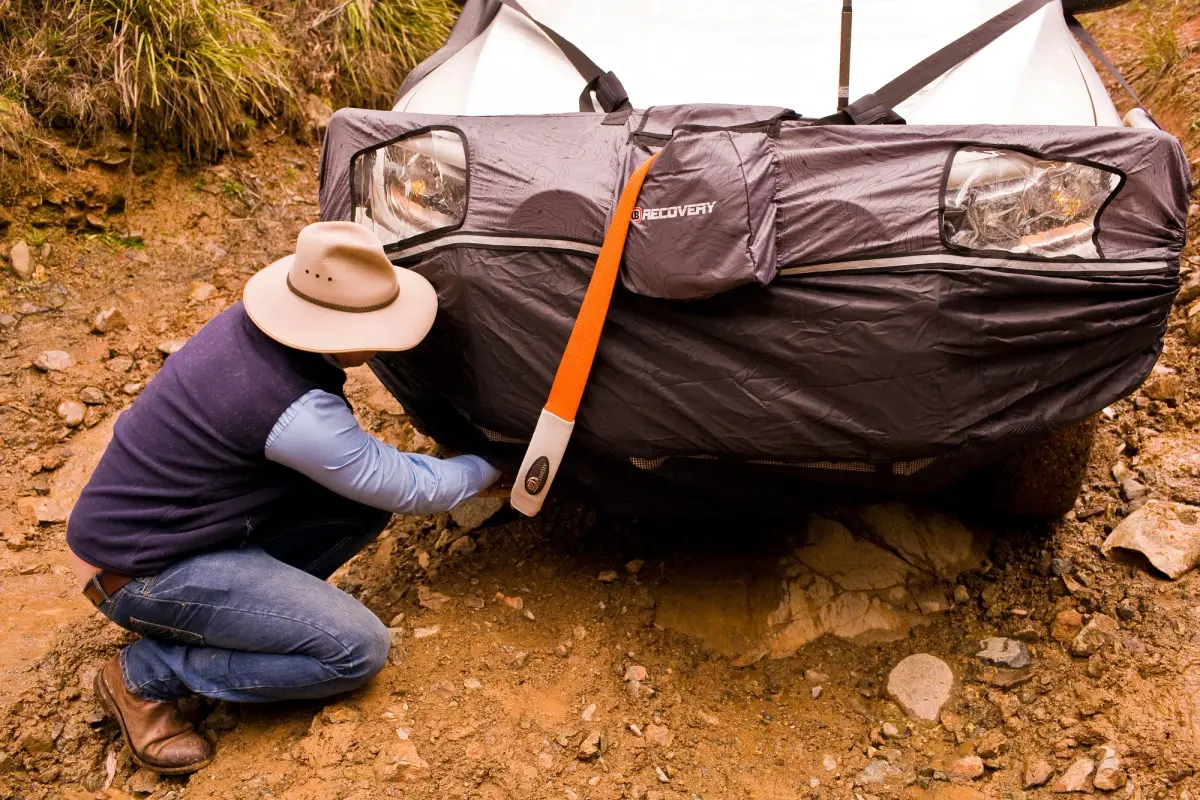
3. Snorkels:
Installing a snorkel is another essential preparation for water crossings. A snorkel raises the air intake point of the engine to a higher position, typically above or level with the roofline. This allows the vehicle to draw in clean, dry air even when crossing deep water. By preventing water from entering the engine's air intake, a snorkel helps protect your engine against hydro lock, which has the potential to cause irreparable damage.
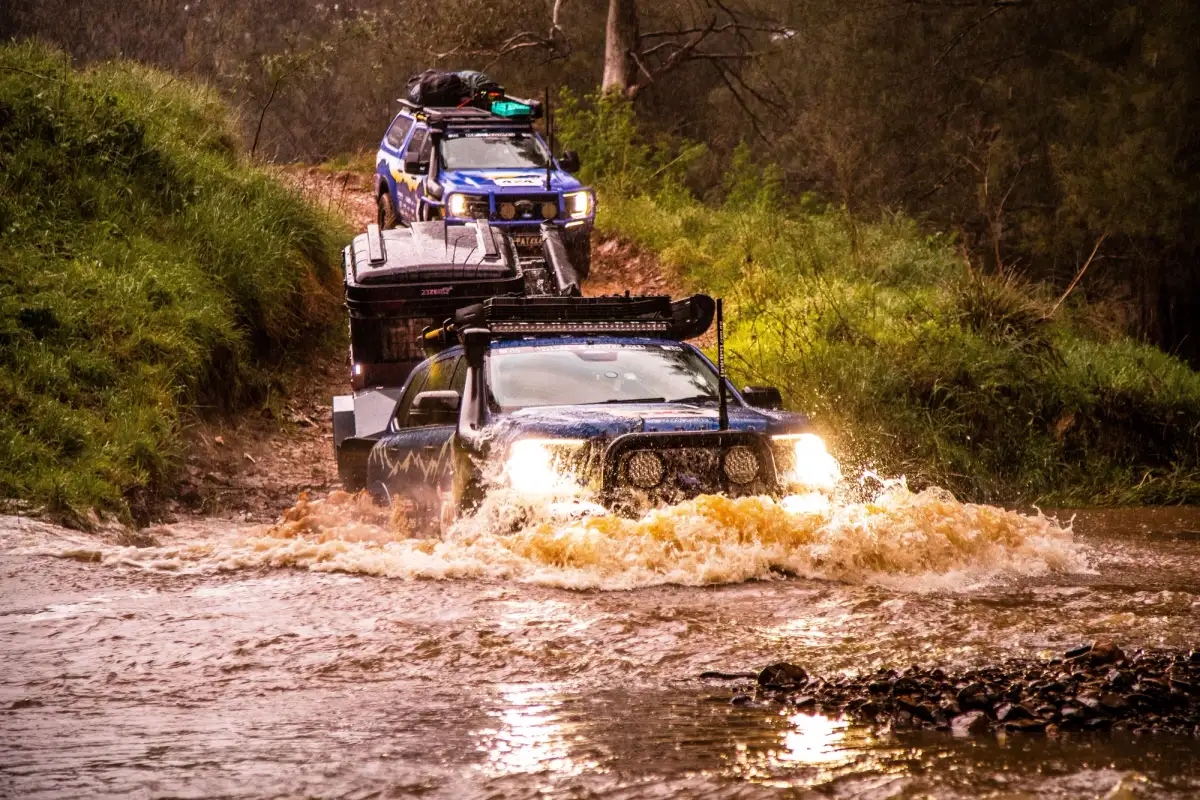
4. Allow the Vehicle to Cool Down:
Before entering icy cold water, it’ is crucial to allow your vehicle's engine to cool down. Sudden exposure to cold water can cause rapid contraction of hot engine components, potentially leading to damage. By allowing the engine to cool down, you reduce the risk of thermal shock and water ingress into low mechanical parts.
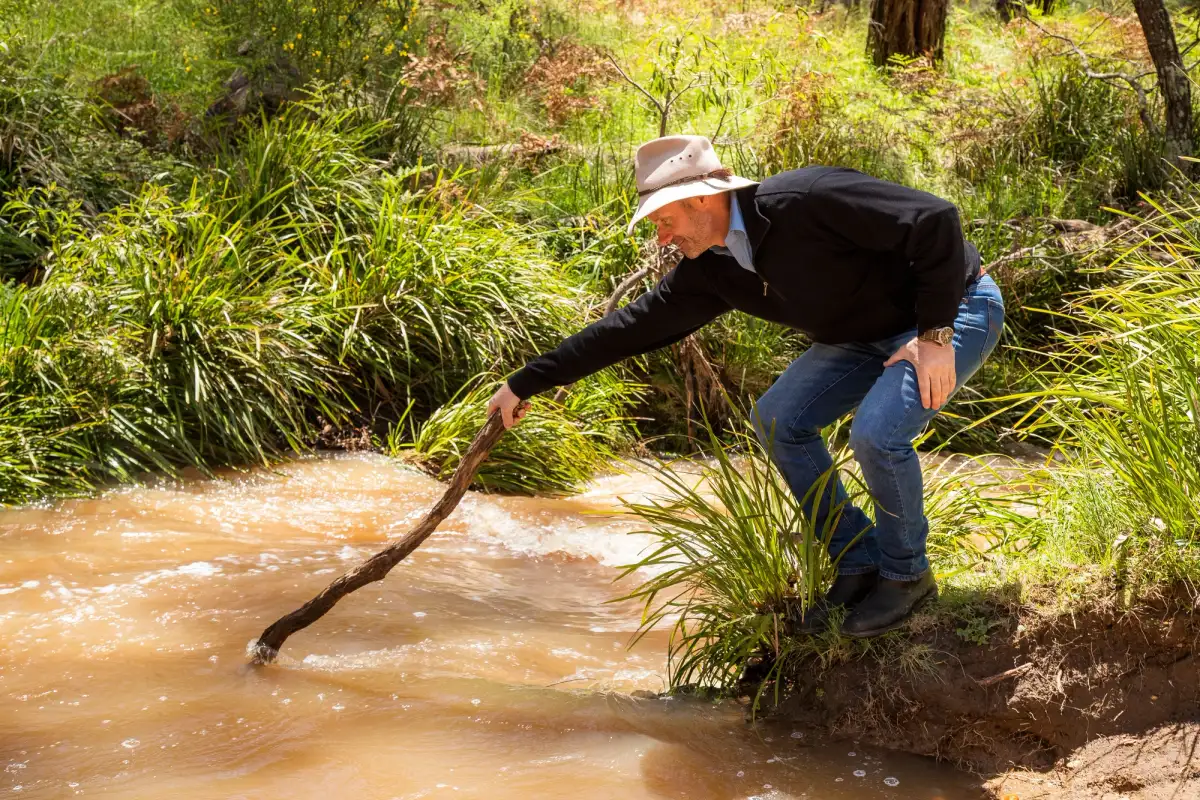
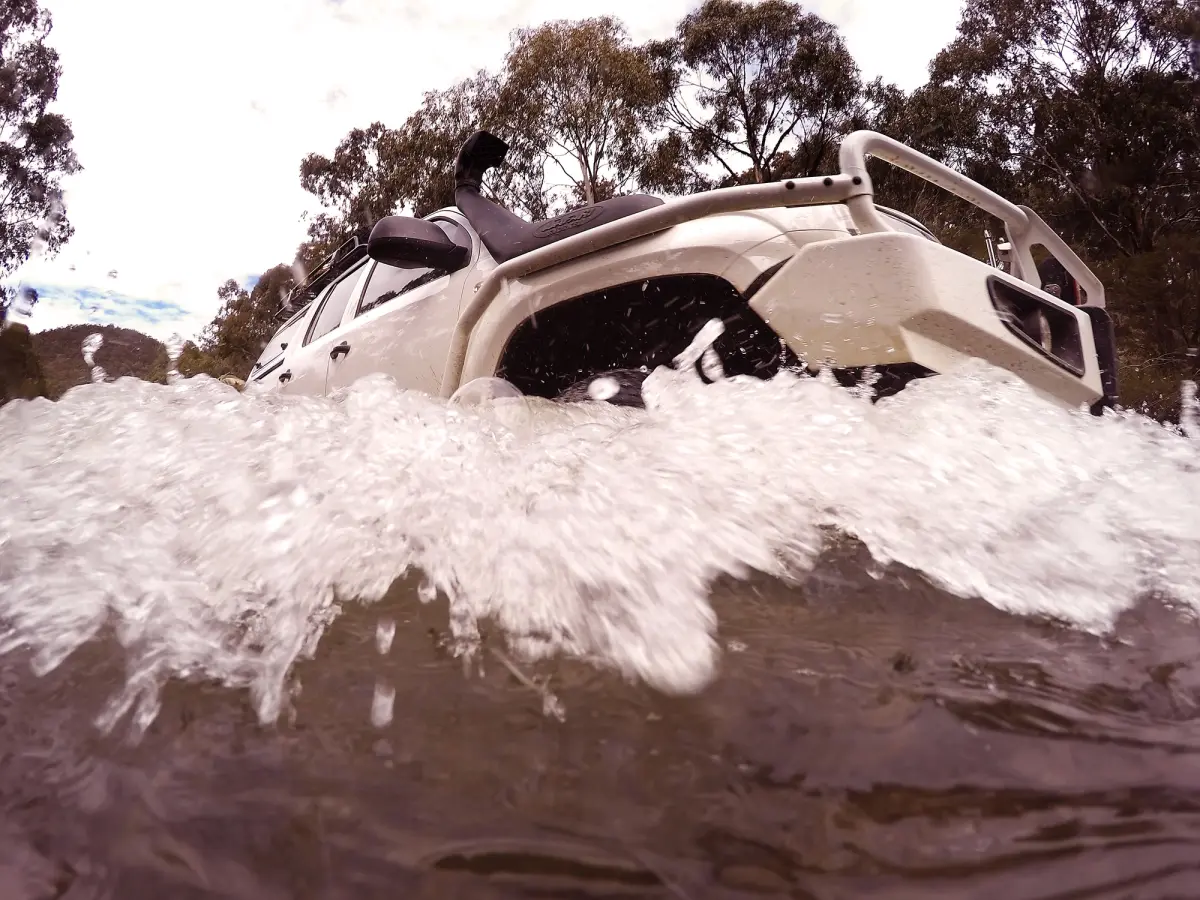
Proper preparation is essential when it comes to water crossings during off-road adventures. By taking the necessary precautions, such as installing differential breathers, using water blinds, fitting snorkels, and allowing the vehicle to cool down before icy water crossings, you can significantly reduce the risk of water ingress and damage to your vehicle's vital components. These measures help protect mechanical parts, electrical systems, and radiator fans from water damage. Remember to always exercise caution, assess water depth and conditions, and choose the appropriate route when crossing water. By prioritising safety and proper preparation, you can enjoy the adventure of water crossings while ensuring the longevity and reliability of your 4X4 vehicle.
We Go Wherever You Can
From beaches to bush tracks and water crossings.


